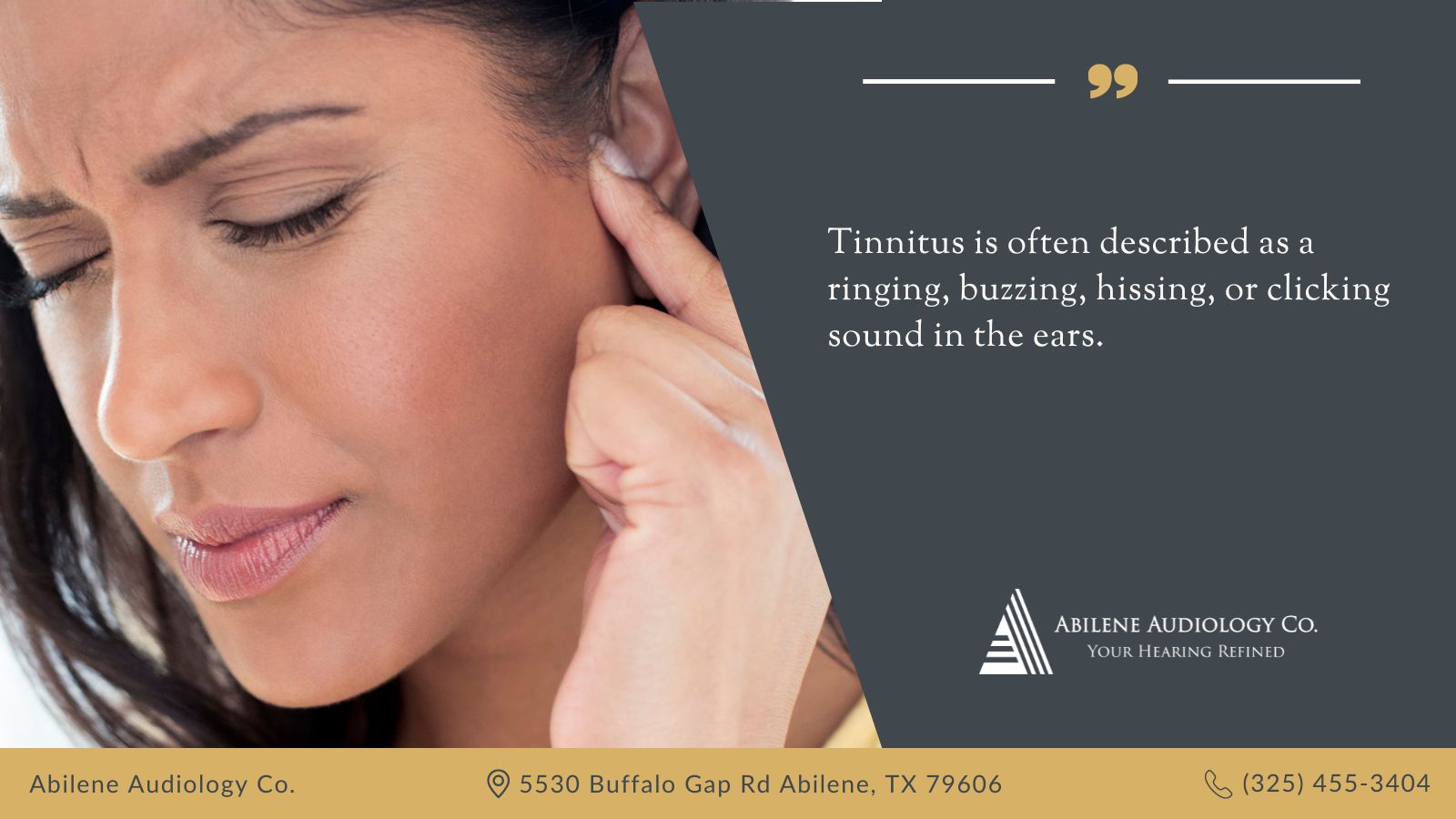As audiologists, we help people enjoy the gift of hearing and keep their ears healthy. One common problem we see often is tinnitus, a strange sound in the ears that affects millions of people worldwide.
In this blog post, we will discuss the first signs of tinnitus and how it can be linked to hearing loss and balance problems.
What Are the First Signs of Tinnitus?
Tinnitus is often described as a ringing, buzzing, hissing, or clicking sound in the ears. For some people, it’s a minor problem that comes and goes, while for others, it can be a constant and upsetting noise.
Initial Signs of Tinnitus
- Persistent Noise: One of the first signs of tinnitus is hearing a noise in the ears or head when there is no outside sound. This noise can be different for everyone. Some people hear ringing, humming, or even music that nobody else can hear.
- Intermittent or Constant Sounds: Tinnitus can show up in different ways. Some people hear the noise off and on, while others hear it all the time. The noise can be different for each person, but any strange sounds in the ears should be taken seriously.
- Unilateral or Bilateral: Tinnitus can affect one ear (unilateral) or both ears (bilateral). If only one ear is affected, it might be due to something specific, like earwax blockage or an ear infection. If both ears are affected, it might be due to other things like age-related hearing loss.
Symptoms of Tinnitus
Tinnitus can come with other symptoms, too. Many people feel frustrated, anxious, or even depressed because of the constant noise. Some people also feel dizzy or have balance problems, which can be very worrying.
The Connection Between Tinnitus, Hearing Loss, and Balance Issues
Tinnitus and Hearing Loss
Hearing loss and tinnitus often go together. Tinnitus is a common sign of hearing loss, especially when it’s related to getting older. When the tiny hair cells in the inner ear get damaged or die, it can cause both hearing loss and tinnitus. The brain tries to make up for the lack of sound by creating phantom sounds, which we hear as tinnitus.
Exposure to loud noises, either from work or fun activities, can damage the inner ear. This damage can cause hearing loss and also trigger tinnitus. If you notice tinnitus along with hearing problems, it’s important to seek help quickly. Early treatment can help manage both conditions better.
Tinnitus and Balance Problems
Tinnitus can also be linked to balance problems, though this is less common. The inner ear, which helps us hear, is also important for balance. The vestibular system, located in the inner ear, sends signals to the brain to help us stay balanced.
Sometimes, tinnitus might be connected to balance disorders. Conditions like Meniere’s disease, which causes unusual fluid buildup in the inner ear, can lead to both tinnitus and vertigo (a strong feeling of dizziness).
Suppose you have tinnitus and unexplained balance issues. In that case, it’s important to see an audiologist or an ear, nose, and throat specialist to find out what’s causing these problems.
Tinnitus Evaluations in Abilene, TX
Knowing the first signs of tinnitus is important for keeping your ears healthy. Tinnitus can show up in different ways, from constant noises in one or both ears to symptoms like anxiety and balance problems. Understanding how tinnitus is connected to hearing loss and balance issues shows why it’s important to seek help early.
Suppose you or someone you know is experiencing signs of tinnitus. In that case, it’s important to get a tinnitus evaluation from a licensed audiologist.
Abilene Audiology Co. provides tinnitus evaluations in Abilene, TX, and nearby areas. Contact us today to schedule an appointment!

